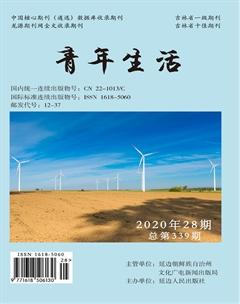A Comparative Study of Fu Lei’s and Chen Xiying’s Translation Theory of “Resemblance in Spirit”
展露露
Abstract:With the academic development, different academic views are indispensable. In the period of the Republic of China in the 20th century, translation theory has made great progress. In the 1920s, there was a debate about translation between Fu Lei and Chen Xiying. They argued about some translation views, which would make translation theory more perfect and play an important role in the development of translation theory in China. This paper aims to compare the similarities and differences of Fu Leis and Chen Xiyings translation thoughts, so that we can not only understand the similarities and differences of their views, but also learn their attitudes towards learning.
Key Words: Fu Lei Chen Xiying “Theory of Resemblance in Spirit”
一、Similarities
Both of them have drawn understanding of translation from their artistic perception. Fu Lei compared translation with photography. Chen Xiying compared translation with painting. Both of them can make complex translation theories more vivid and easy for readers to understand through comparison. At the same time, we can see that in his early years, Fu Lei graduated from the University of Paris in France . At the age of 15, Chen Xiying , went to study in the UK and obtained his doctorate in 1922. (Chen Fukang, 1992:316-327).
二、Differences
2.1 Different Understandings in “Expressiveness”
According to Chen Xiying,”there is only one criterion for literary translation, that is, when translating non literary works, faithfulness is not a necessary condition.” Some foreign works, such as those of symbolism and expressionism, are not inherently “Expressiveness.” (Chen Xiying, 1984:135-143) It can be seen that Chen Xiyings understanding of “Expressiveness” is limited to the scope of rhetoric.However, the emphasis on resemblance does not mean that Fu Lei ignores the resemblance of form, nor that Fu Lei only seeks for resemblance of spirit. We can see the purpose of Fu Leis theory of “resemblance in spirit” is still to be faithful to the spirit and temperament of the original work.
2.2 Different Understandings in “Resemblance in Spirit”
According to Chen Xiying, “no matter how skillful the imitator is, he can never get the authors verve, because as Mr. sick man said,” verve is the fragrance from the poets heart. “ (Chen Xiying, 1984:142-143) Chen Xiying believes that “verve” is impossible for translators to obtain, that is to say, “verve” is untranslatable. However, Fu Leis translation view of “the theory of resemblance in spirit” pursues the harmonious unity of the resemblance in form and the resemblance in spirit, and correctly deals with the primary and secondary contradictions in literary criticism.
2.3 Different Understanding in Readers Response
Chen Xiying believes that it is impossible to compare the readers effect of the original text and the translated text due to the differences in languages and thoughts. According to Nida, “at least 90% of the basic structure of a language is quite close, and the general law of language is far more than the difference of language.” (Nida, 1998:302) Therefore, “what one language can express must be expressed in another language. (NIDA & Taber, 2004:4).
Fu Lei proposed that translation should be regarded as the translators own Chinese and the authors recreation in order to achieve “resemblance in spirit”.
三、Conclusion
Through a comparative study of the translation thoughts of Fu Lei and Chen Xiying, we have a deep understanding of their translation thoughts, and at the same time, we have realized that their translation disputes have played a positive role in the development of translation theory. Nowadays, translation studies in China need hold the principle of letting a hundred flowers bloom, a hundred schools of thought contend. Therefore, it is necessary for us to learn from Fu Lei and Chen Xiyings academic spirit of daring and objective argumentation.
references:
[1] Nida,E.A.& CharlesR.Taber.The Theory and Practiceof Translation[M]. Shanghai:Shanghai Foreign LanguageEducation Press,2004:4.
[2] Nida,E.A.Language Culnure and Translation[M]. Huhhot:Inner Mongolia University Press,1998:302.
[3] Chen Xicheng, on translation [C]. Translation research papers, editorial department of translation communication, China Translators Association. Beijing: foreign language teaching and Research Press, 1984:135-143.
[4] Chen Fukang, historical manuscript of Chinese translatology theory [M], Shanghai: Shanghai Foreign Language Education Press, 1992:316-327.
[5] Zeng Xubai. Difficulties in translation [C]. Beijing: foreign language teaching and Research Press, 1984:144-149.
[6] Zeng Xubai. Verve and expressiveness in Translation -- supplement to on translation by Mr. Xicheng [C]. Beijing: foreign language teaching and Research Press, 1984:150-156.
[7] Fu Leis Anthology of translation theory and translation skills [C] Beijing: China Foreign Translation Publishing Company: 1983.
[8] Zhao an and Fu Lei on translation (m). Shenyang: Liaoning Education Publishing Co., Ltd., 2005.

